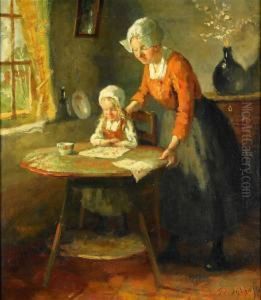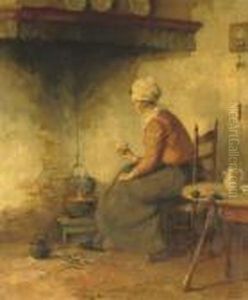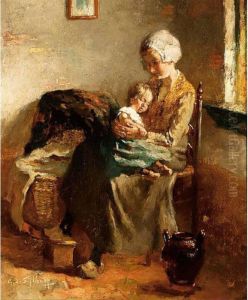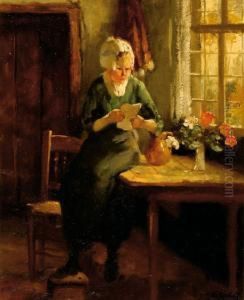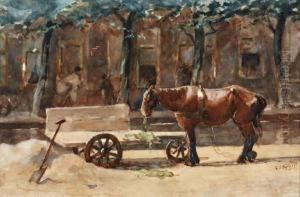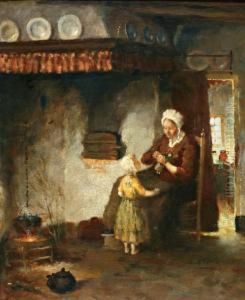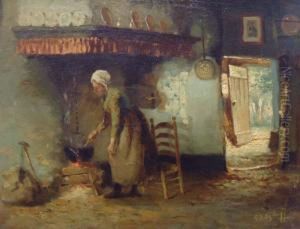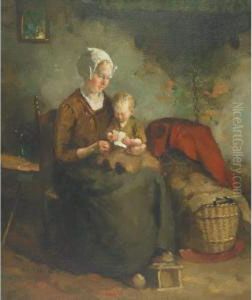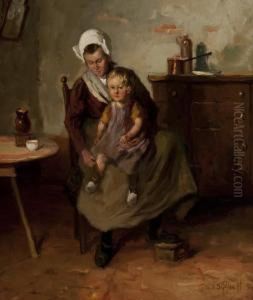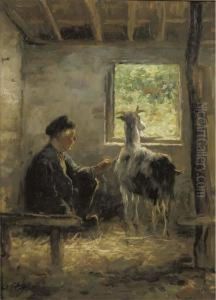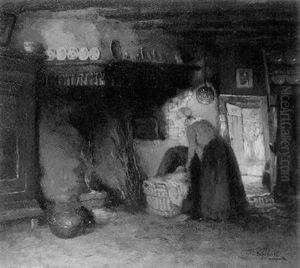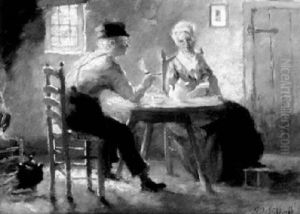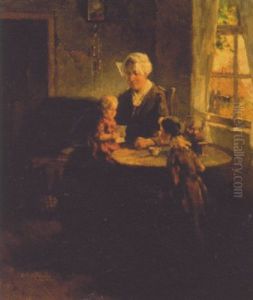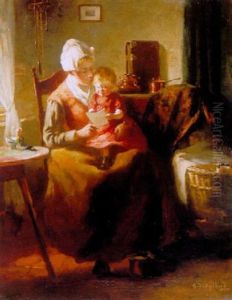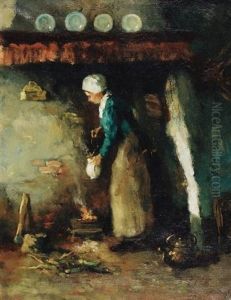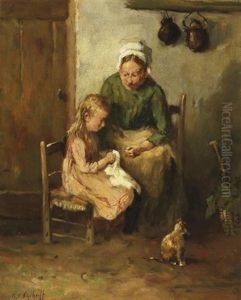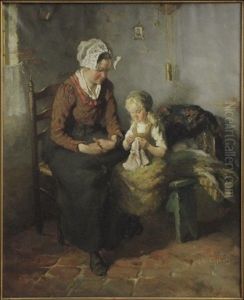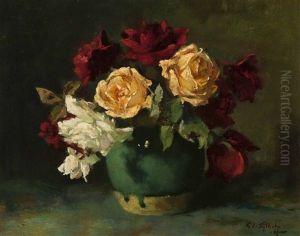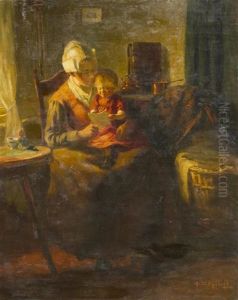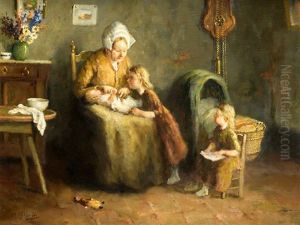Gijsbertus Jan Sijthoff Paintings
Gijsbertus Jan Sijthoff was a prominent Dutch publisher, rather than an artist in the traditional sense of a painter or sculptor. Born on March 29, 1829, in Leiden, Netherlands, he is best known for his significant contributions to the world of publishing and his role in the newspaper industry in the Netherlands. Sijthoff's legacy is deeply intertwined with that of the Dutch press, having established a publishing empire that played a crucial role in the dissemination of information and culture.
Sijthoff took over his father's publishing business in 1852, which at the time was a small printing office. He expanded the business significantly, transforming it into a major publishing house known as A.W. Sijthoff's Uitgeversmaatschappij. One of his most notable achievements was the founding of the newspaper 'Leidsch Dagblad' in 1860, which continues to be published to this day. Under his leadership, the company also produced a wide range of other publications, including books, journals, and more.
Sijthoff was an innovator in the field of printing and publishing. He was known for his adoption of new technologies and his efforts to improve the quality and efficiency of the printing processes. His contributions extended beyond his own business, as he was involved in various endeavors aimed at elevating the standards of the industry as a whole. Sijthoff was also active in local and national politics, and he served as a city council member in Leiden.
The influence of Gijsbertus Jan Sijthoff on Dutch publishing was significant, and his business practices set a standard for future generations. His company continued to flourish after his death, remaining an important player in the publishing industry. Gijsbertus Jan Sijthoff passed away on November 25, 1902. Although he was not an artist in the narrow sense, his impact on the cultural landscape of the Netherlands was marked by his commitment to the proliferation of literature and journalism, making him a notable figure in the history of Dutch media.
